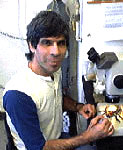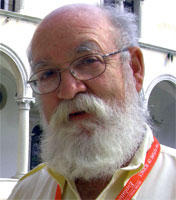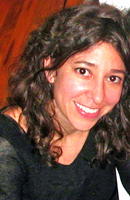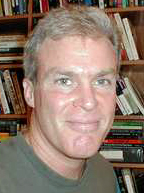How do the microprocesses of cultural transmission affect the macro structure of culture, its content, its evolution? The microprocesses, the small-scale local processes I am talking about are, on the one hand, psychological processes that happen inside people's brains, and on the other hand, changes that people bring about in their common environment — for instance the noise they make when they talk or the paths they unconsciously maintain when they walk — and through which they interact.
Just as the human mind is not a blank slate on which culture would somehow imprint its content, the communication process is not a xerox machine copying contents from one mind to another. This is where I part company not just from your standard semiologists or social scientists who take communication to be a coding-decoding system, a transmission system, biased only by social interests, by power, by intentional or unconscious distortions, but that otherwise could deliver a kind of smooth flow of undistorted information. I also part company from Richard Dawkins who sees cultural transmission as based on a process of replication, and who assume that imitation and communication provide a robust replication system.

photo: Leila Pozzo
Introduction
Dan Sperber is a French anthropologist who has focused on the more cognitive, more naturalist, approaches linked to evolution. "For a long time," he says, "my ideas were not very well received among anthropologists. They’ve been discussed a lot, but I found myself spending too much time with my fellow anthropologists arguing the basics of the field rather than moving forward in research. I got involved in linguistics, experimental psychology, philosophy of science, evolutionary biology, and lots of fascinating topics—and continuing also the conversation with anthropologists. Anthropology is a discipline that has been in crisis all my life."
Dan Sperber's parents were both eastern-European Jews; his father, Manes Sperber, a famous novelist, was born in Galicia, grew up in Vienna, then moved to Germany. He met his mother, who came from Latvia, in France in the 30s . Manes Sperber was a Communist, was very active in the party, but left the party at the time of the Moscow trials. Sperber was born in France. "That's my culture," he says. "I am French. Still, there are French people who are much more French than I am. They have roots as they say, but the image of roots has always made me smile. You know, I'm not a plant."
The reason he gives for having become an anthropologist is that he was raised an atheist. There was no god in the family. His father, Manes Sperber, was from a Jewish family, had refused to do his bar mitzvah, and he transmitted zero religion to his son, but at the same time, he had deep respect for religious people. There was no sense that they are somehow inferior. This left the young Sperber with a puzzle: how can people, intelligent decent people, be so badly mistaken?
Sperber is known for his work in developing a naturalistic approach to culture under the name of "epidemiology of representations", and, with British linguist Deirdre Wilson, for developing a cognitive approach to communication known as "Relevance Theory". Both the epidemiology of representations and relevance theory has been influential and controversial.
He is also known for his early work on the anthropology or religion, in which he tried to understand, in a generalist manner and in a positive way (i.e. without making them into idiots), why people could be religious. He took part in classical anthropological studies but he also argued from the start that you have to look at basic innate mental structures, which, he argued, "played quite an important role in the very possibility of religious beliefs, in the fact that, more generally, beliefs in the supernatural fixate in the way they do in the human mind, are so extraordinarily catching".
Sperber's "catchiness", a theory he has been exploring for a generation, connects with Malcolm Gladwell's idea of a "tipping point". "I've never met Gladwell, " he says, "but when his book came out, many people sent me the book, or told me to read it, telling me that here's the same kind of thing you've been arguing for a long time. Yes, you get the kind of epidemiological process of something gradually, almost invivibly spreading in a population and then indeed reaching a “tipping point.” That's the kind of dynamic you may find with epidemiological phenomena. Still, I don't believe that Gladwell or anybody else, myself included, has a satisfactory understanding of the general causes of the dynamics of cultural distribution.”
" Now, if I could just write with the slickness of Gladwell, and coin one of his best-selling titles such as Blink! or The Tipping Point. . . but I guess I would also have to give up trying to convey much of the hard substance of my work. Oh well..".
Edge is pleased to present "An Epidemiology of Representations: A Talk with Dan Sperber".
-JB
DAN SPERBER, Directeur de Recherche au CNRS, Paris, is a French social and cognitive scientist. He is the author of Rethinking Symbolism, On Anthropological Knowledge, and Explaining Culture. He is also the co-author, (with Deirdre Wilson) of Relevance: Communication and Cognition.
Sperber holds a research professorship at the French Centre National de la Recherche Scientifique (CNRS) in Paris, and has held visiting positions at Cambridge University, the British Academy, the London School of Economics, the Van Leer Institute in Jerusalem, the Institute for Advanced Study in Princeton, Princeton University, the University of Michigan, the University of Bologna, and the University of Hong-Kong.
Dan Sperber's Edge Bio Page











